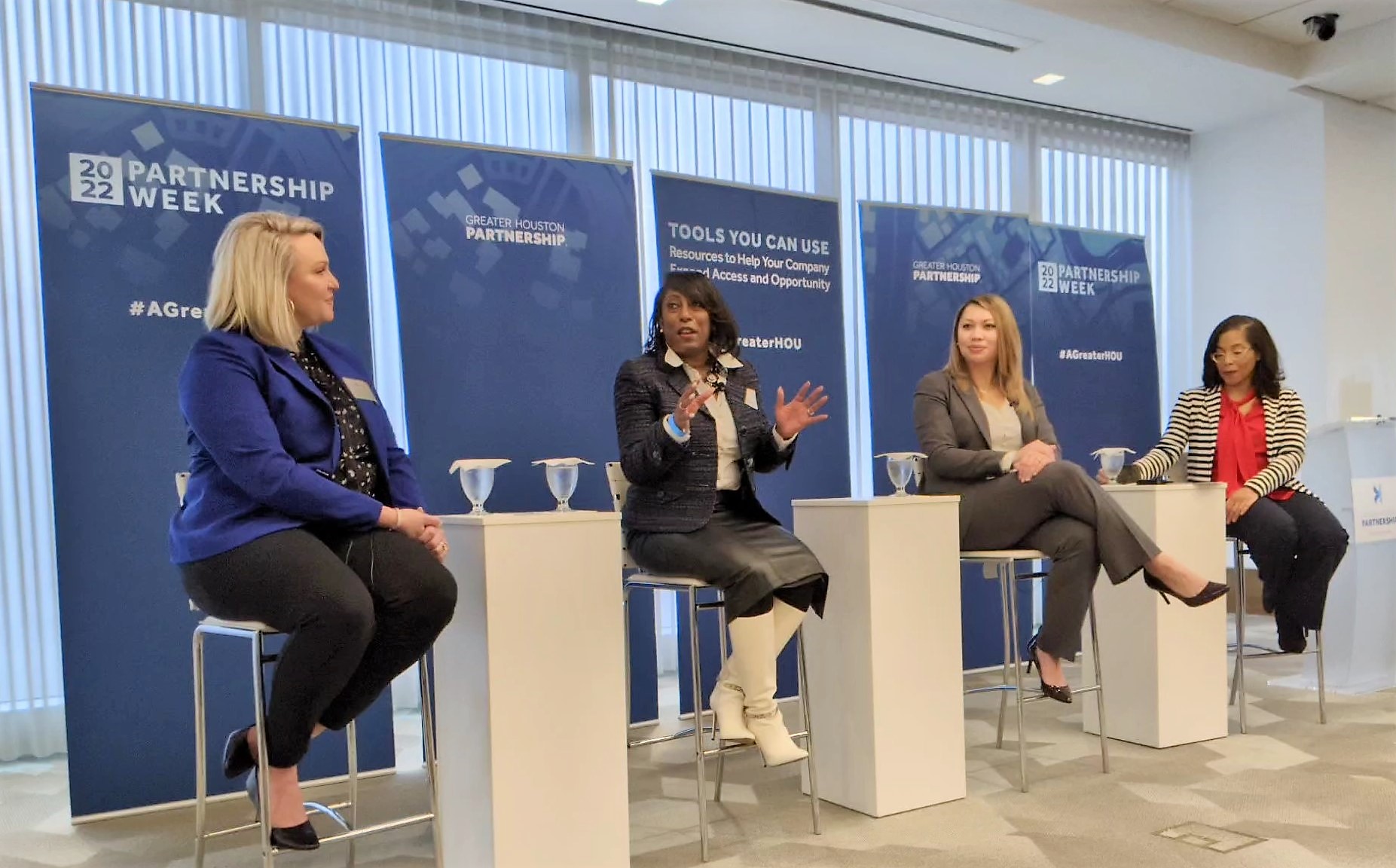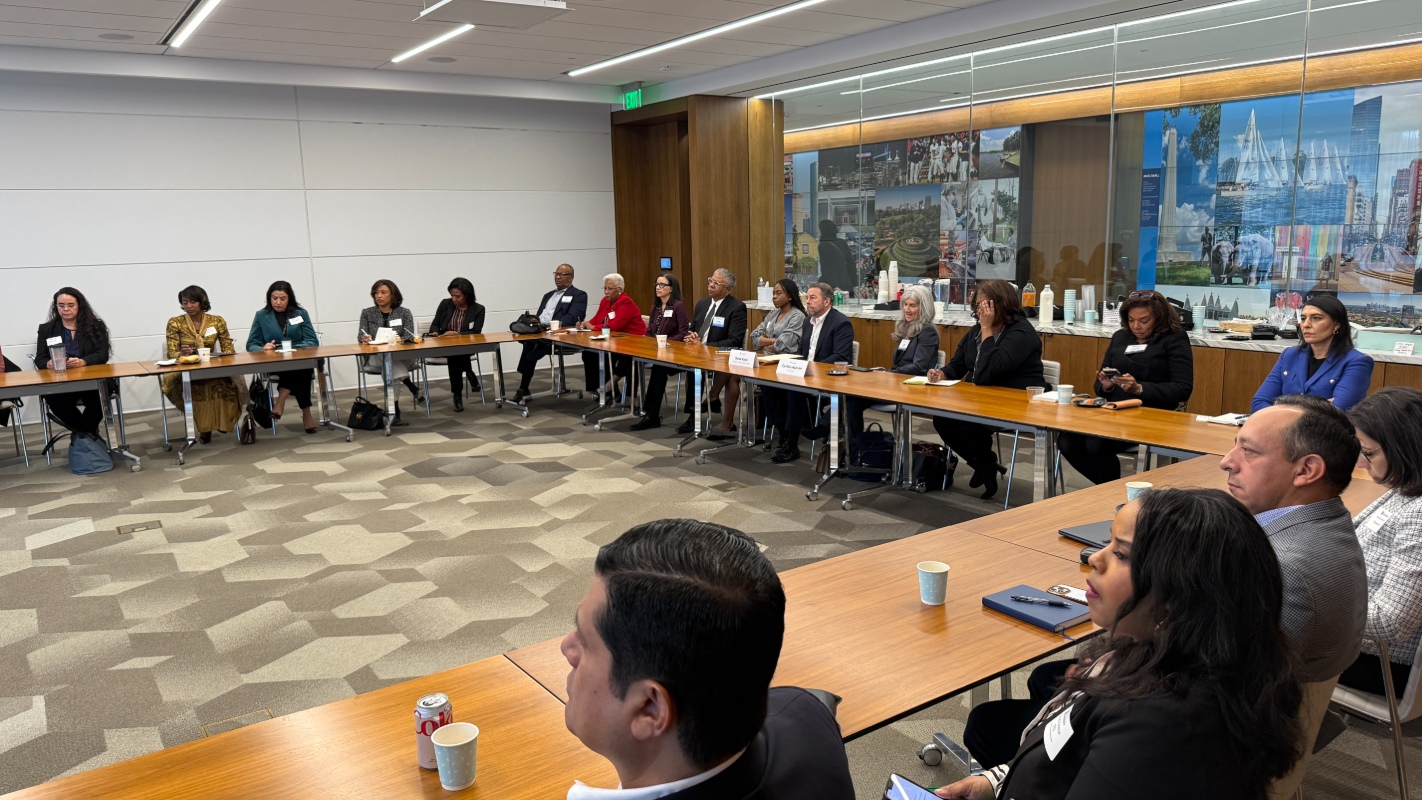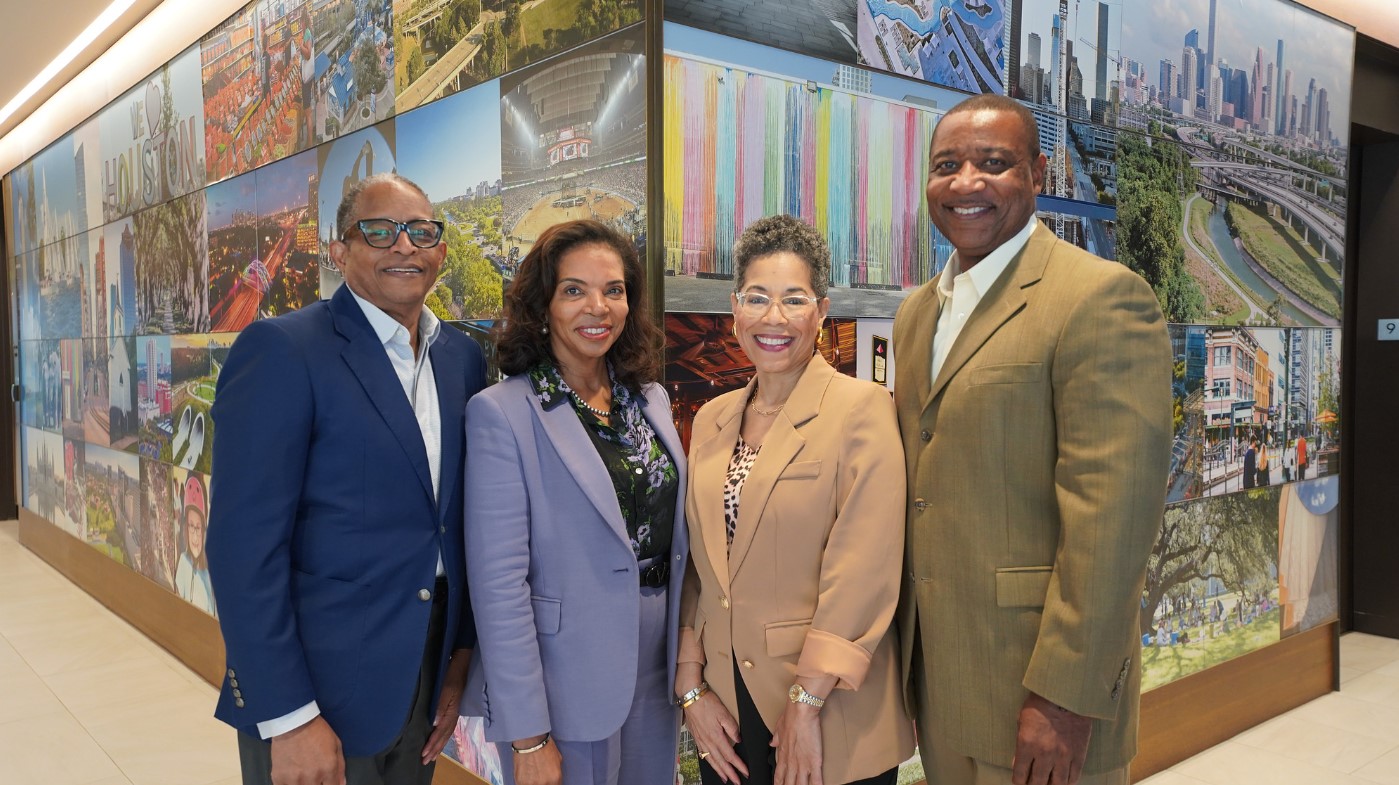How 3 Companies are Advancing DEI in Houston
Published Feb 03, 2022 by A.J. Mistretta
How are local business leaders working to advance diversity, equity and inclusion within their companies and what is the Partnership doing through One Houston Together to help guide that work? A Partnership Week event held on February 2 aimed to address those questions and others with a panel of business leaders.
Tools You Can Use - Resources to Help Your Company Expand Access and Opportunity featured key highlights from the Partnership’s recent regional Equity & Inclusion Assessment and focused on practical examples from a companies representing different industries and varied approaches to DEI progress. For a summary of the assessment findings, click here.
Panelists included:
- Rissa McGurn, Director, of Global Diversity, Equity & Inclusion, McDermott
- Adrienne C. Trimble, Vice President, Chief Diversity Officer, Sysco Corporation
- Tracey Wickersham, Vice President, Human Resource Business Partner, Bank of Texas
- Moderator: LaTanya Flix, Senior Vice President – Diversity, Equity and Inclusion, Greater Houston Partnership
Each of the panelists discussed their organization’s roadmap in advancing DEI, some of the challenges faced and what the path forward looks like.
Trimble said when food giant Sysco’s current CEO Kevin Hourican took the reins in 2020, he was surprised and dismayed to see an executive leadership team that looked just like him, with very little diversity. He set in motion a plan to change that and today the executive team is more representative of the company’s employees and the diverse customers it serves.
Trimble said through her role as Chief Diversity Officer, she’s helped put in place the company’s first DEI Advisory Council and is working with the broader leadership team to build out Sysco’s DEI roadmap. “For us, it’s understanding that there’s a foundation in place, that our leaders are ready, and there are clear expectations,” she said. “I tell people all the time that I do not own DEI for this organization. I facilitate it but it’s all of our responsibility as a leadership team.”
Wickersham with Bank of Texas said a big hurdle in DEI has been establishing systems to capture the metrics the company want so measure. “That was a big step for us because before, we didn’t have a way to capture that data,” she said. Good data has proven useful in a number of ways, including dispelling the belief that the company wasn’t attracting diverse talent. “What we learned was that our challenge wasn’t so much attracting the talent but advancing the talent. Now with that knowledge we are working to address it.”
McGurn highlighted how business can make progress even during times of executive transition and the importance of starting with existing resources and building from there. She highlighted the usefulness of the regional Equity and Inclusion Assessment benchmarks and how “they helped us create a dialogue with our global teams" and have proven valuable to McDermott as it built out DEI objectives. She recommended that company leaders ask themselves, “What it feels like to be a part of this company?" and suggested that employers probe to learn more about what makes each of the experiences at a company more equitable and inclusive.
Trimble said it’s critical that organizations understand how DEI can help address real business objectives. From talent advancement and retention to procurement practices, there is a strong bottom-line rationale for companies to engage in this work in a meaningful way. Trimble said. “Put out a plan and get going. But bring along the naysayers too because you have to meet your company and your people where they are and make everyone a believer for it to work.”
Resources:
- Benchmark DEI Progress
- View 9 industry fact sheets (high level overview)
- Use interactive dashboard to filter assessment data by gender, race, and organization type
- Read Key Articles
- View SXSW HouTalk: Shaping Diversity, Equity & Inclusion in the Workplace
- Participate in Best Place for Working Parents® online self-assessment
 The Houston Report
The Houston Report





















